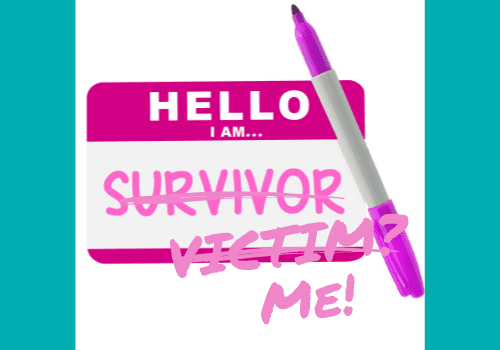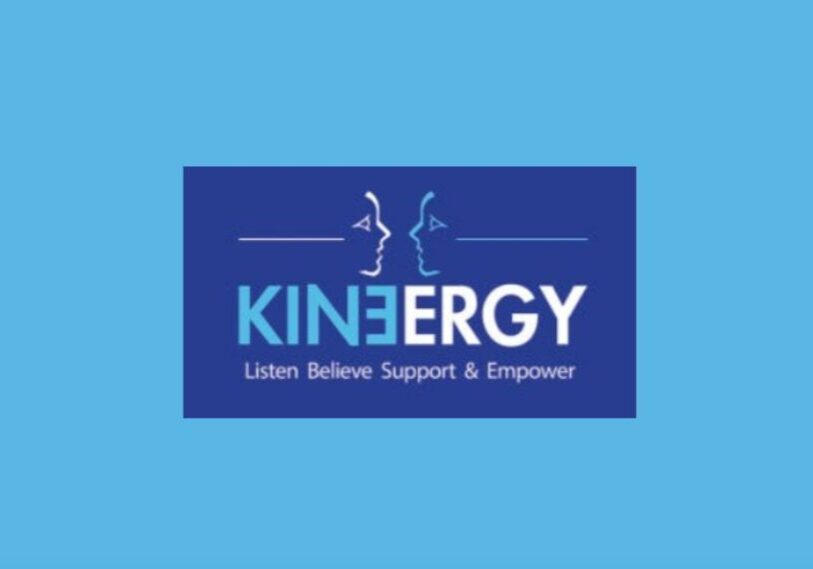
Exploring Trauma Labels
Personally, I have never felt comfortable with the labels Victim, Survivor or Victim-Survivor being applied to me despite having lived experience of Child Sexual Abuse (CSA) alongside other adverse childhood experiences.
Now before I explore why, I want to clarify that if the labels and terms discussed here feel valuable and useful for you, I am not seeking to change your mind or undermine the meaning and connection you have found with these labels, your stories and your truth are welcomed by me.
Lived Experience
I think because language and stories mean so much to me, I tend to interrogate the labels offered to me. Let’s start with ‘lived experience’. I can easily acknowledge that I have lived experience of CSA and the other trauma as ‘lived experience’ simply describes certain facts and feels neutral. It doesn’t feel like it assumes the meaning and value of my experience. However, I have had many people tell me that the term lived experience minimises the impact of abuse, because it doesn’t describe the devastation and huge impact these events have on our lives. In one way this is true, lived experience expresses nothing of the impact these trauma’s have, but it also leaves you free to choose your own narrative, honestly for me words like Victim, Survivor or Victim-Survivor do not leave me feeling more seen and understood. They feel like identities that are being forced on me by systems and individuals that have not cared for or understood me.
Victim
The term victim would make sense to me if I was going through a court process, it is a legal term describing that crimes have been committed against me and therefore I could accept it if I choose to walk through justice processes. However, while there is no doubt that I was victimised as a child, I never want to tell my younger self that she is simply a victim, she was always so much more than that and why should other people’s harmful choices be granted the right to define her for life?
I do have sympathy for the term victim as I was deeply marked and shaped by these experiences and have fought a long battle to unwind the impact of these traumatic events from my sense of self, which is particularly difficult if you don’t have a memory of life before trauma entered it and have no idea who you might have become otherwise. So, the pain that the word victim describes feels valid to me, but I am not trapped in these places of pain, the redemption of these experiences is ongoing.
Survivor
Personally, I struggle the most with the term survivor for a few reasons even though it is the term others are most likely to offer me. The label survivor is offered by some as a badge of honour, seeking to congratulate me for being a resilient overcomer, which I dislike intensely. I do not want to identify with assumptions that because I can hold down a job and value the person I am becoming, I am somehow better then those who identify with the term victim. In our patriarchal society survivors are celebrated and victims are shamed and silenced, considered socially less than!
For me the term survivor is far from aspirational. What my younger self lived through should never have happened to any child and I will not collude with the notion that because my younger self was resilient and powerful in certain ways, this made these experiences acceptable. I also don’t believe that these experiences somehow made me into the women that I am today. Why should I give perpetrators any credit for forming me into the person I am? They did not make me nor did they break me, they don’t have that power! Although if you have felt broken by the abuse you experienced, I understand this, brokenness simply isn’t the end of my story. Lastly for me, the term survivor would be like telling the child I was that it was ok that she experienced multiple abuses and was left to deal with it completely alone unseen because she was strong and therefore could handle it. This is something that I will never say to her.
Victim-Survivor
I know the term Victim-Survivor tries to bridge the gap between the concepts of victim and survivor and recognise that both can be true, but for me it doubles down on two narratives and identities that don’t reflect my truth, experience, or my journey. My experiences do matter and have meaning but I guess I am saying that I should have the right to define and choose what these experiences mean for me, allow me the right to show up in my fullness rather then trying to pack me into the boxes these labels represent.
What works for you
I don’t have a universal term to offer to replace victim or survivor. I have a personal term that works for me but the point of this blog is not to get you to adopt my way of thinking or my terms. Instead, I am seeking to encourage you that if these terms don’t sit well with you either, pick your own terms. Reclaim the narrative and meaning of your experiences for yourself rather than letting others define it for you or feeling like you are somehow being compartmentalized into incomplete pieces of yourself… it is ok to show up fully and seek wholeness in the identities that you accept for yourself.
The latest from our news and blogs

Be the change: how to be an Active Bystander
We can all be bystanders. Every day events unfold around us. At some point, we will register someone in danger. When this happens, we can decide to do or say something (and become an active bystander), or to let it go (and remain a passive bystander).

Kinergy closure statement
We are deeply saddened by the closure of Kinergy, an organisation that has provided invaluable support to survivors of sexual violence for nearly 30 years.

The power of creativity in healing: songs of survival
Recently, two people reached out to us independently, each having recorded a song about their personal experiences of sexual violence. Their powerful and deeply moving songs serve as a testament to resilience, and we’re honoured they asked us to share their work.


